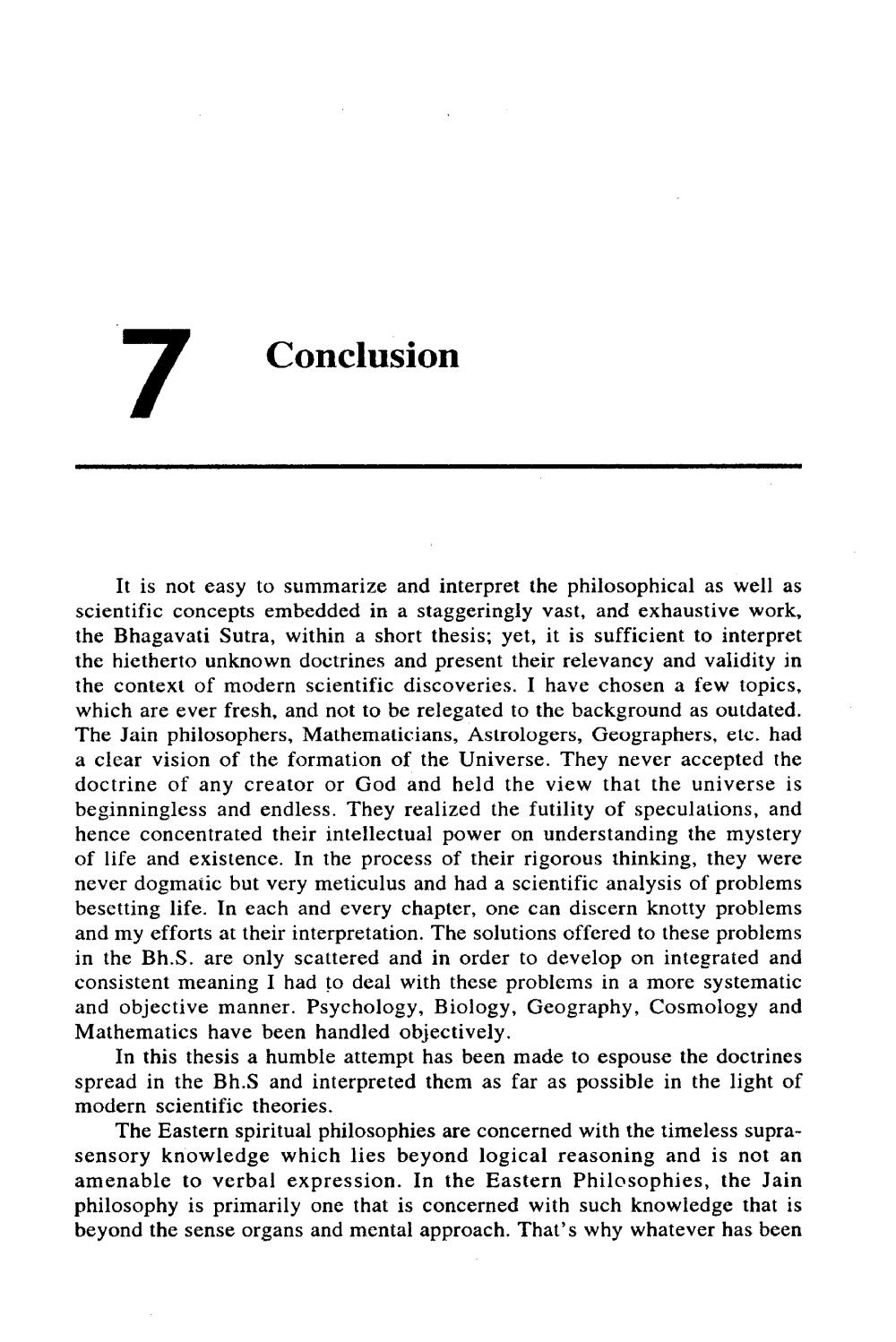________________
Conclusion
It is not easy to summarize and interpret the philosophical as well as scientific concepts embedded in a staggeringly vast, and exhaustive work, the Bhagavati Sutra, within a short thesis; yet, it is sufficient to interpret the hietherto unknown doctrines and present their relevancy and validity in the context of modern scientific discoveries. I have chosen a few topics, which are ever fresh, and not to be relegated to the background as outdated. The Jain philosophers, Mathematicians, Astrologers, Geographers, etc. had a clear vision of the formation of the Universe. They never accepted the doctrine of any creator or God and held the view that the universe is beginningless and endless. They realized the futility of speculations, and hence concentrated their intellectual power on understanding the mystery of life and existence. In the process of their rigorous thinking, they were never dogmatic but very meticulus and had a scientific analysis of problems besetting life. In each and every chapter, one can discern knotty problems and my efforts at their interpretation. The solutions offered to these problems in the Bh.S. are only scattered and in order to develop on integrated and consistent meaning I had to deal with these problems in a more systematic and objective manner. Psychology, Biology, Geography, Cosmology and Mathematics have been handled objectively.
In this thesis a humble attempt has been made to espouse the doctrines spread in the Bh.S and interpreted them as far as possible in the light of modern scientific theories.
The Eastern spiritual philosophies are concerned with the timeless suprasensory knowledge which lies beyond logical reasoning and is not an amenable to verbal expression. In the Eastern Philosophies, the Jain philosophy is primarily one that is concerned with such knowledge that is beyond the sense organs and mental approach. That's why whatever has been




